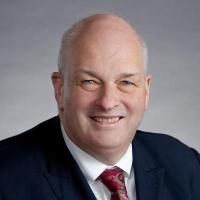Frequency and Acceptability of Adverse Events After Anterior Cervical Discectomy and Fusion: A Survey Study From the Cervical Spine Research Society.
Date
2018-06
Journal Title
Journal ISSN
Volume Title
Repository Usage Stats
views
downloads
Citation Stats
Attention Stats
Abstract
PURPOSE:Anterior cervical discectomy and fusion has a low but well-established profile of adverse events. The goal of this study was to gauge surgeon opinion regarding the frequency and acceptability of these events. METHODS:A 2-page survey was distributed to attendees at the 2015 Cervical Spine Research Society (CSRS) meeting. Respondents were asked to categorize 18 anterior cervical discectomy and fusion-related adverse events as either: "common and acceptable," "uncommon and acceptable," "uncommon and sometimes acceptable," or "uncommon and unacceptable." Results were compiled to generate the relative frequency of these responses for each complication. Responses for each complication event were also compared between respondents based on practice location (US vs. non-US), primary specialty (orthopedics vs. neurosurgery) and years in practice. RESULTS:Of 150 surveys distributed, 115 responses were received (76.7% response rate), with the majority of respondents found to be US-based (71.3%) orthopedic surgeons (82.6%). Wrong level surgery, esophageal injury, retained drain, and spinal cord injury were considered by most to be unacceptable and uncommon complications. Dysphagia and adjacent segment disease occurred most often, but were deemed acceptable complications. Although surgeon experience and primary specialty had little impact on responses, practice location was found to significantly influence responses for 12 of 18 complications, with non-US surgeons found to categorize events more toward the uncommon and unacceptable end of the spectrum as compared with US surgeons. CONCLUSIONS:These results serve to aid communication and transparency within the field of spine surgery, and will help to inform future quality improvement and best practice initiatives.
Type
Department
Description
Provenance
Subjects
Citation
Permalink
Published Version (Please cite this version)
Publication Info
Wilson, Jefferson R, Kris Radcliff, Gregory Schroeder, Madison Booth, Christopher Lucasti, Michael Fehlings, Nassr Ahmad, Alexander Vaccaro, et al. (2018). Frequency and Acceptability of Adverse Events After Anterior Cervical Discectomy and Fusion: A Survey Study From the Cervical Spine Research Society. Clinical spine surgery, 31(5). pp. E270–E277. 10.1097/bsd.0000000000000645 Retrieved from https://hdl.handle.net/10161/28350.
This is constructed from limited available data and may be imprecise. To cite this article, please review & use the official citation provided by the journal.
Collections
Scholars@Duke

Christopher Ignatius Shaffrey
I have more than 25 years of experience treating patients of all ages with spinal disorders. I have had an interest in the management of spinal disorders since starting my medical education. I performed residencies in both orthopaedic surgery and neurosurgery to gain a comprehensive understanding of the entire range of spinal disorders. My goal has been to find innovative ways to manage the range of spinal conditions, straightforward to complex. I have a focus on managing patients with complex spinal disorders. My patient evaluation and management philosophy is to provide engaged, compassionate care that focuses on providing the simplest and least aggressive treatment option for a particular condition. In many cases, non-operative treatment options exist to improve a patient’s symptoms. I have been actively engaged in clinical research to find the best ways to manage spinal disorders in order to achieve better results with fewer complications.
Unless otherwise indicated, scholarly articles published by Duke faculty members are made available here with a CC-BY-NC (Creative Commons Attribution Non-Commercial) license, as enabled by the Duke Open Access Policy. If you wish to use the materials in ways not already permitted under CC-BY-NC, please consult the copyright owner. Other materials are made available here through the author’s grant of a non-exclusive license to make their work openly accessible.
